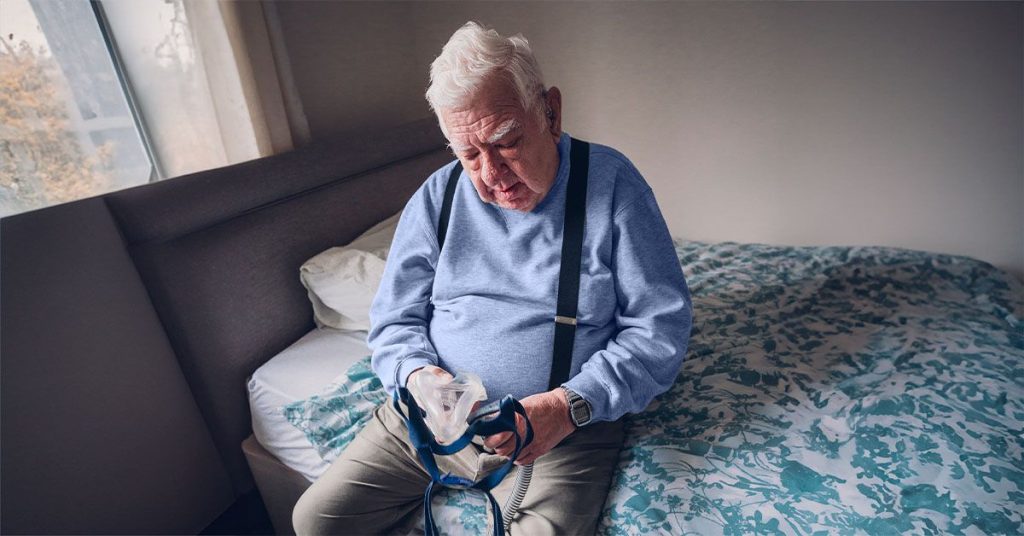Obstructive sleep apnea (OSA) affects 936 million adults worldwide and may raise the risk for several neurological conditions, including Alzheimer’s. Researchers from the University of California, Irvine have found that sleep apnea severity during the REM stage of sleep negatively impacts verbal memory. The negative impact is especially high in older adults at risk for Alzheimer’s. Verbal memory is particularly vulnerable to Alzheimer’s disease and is one of the earliest forms of memory to be impacted by Alzheimer’s disease biomarkers. The researchers recruited 81 adults with an average age of about 62, with 70% having a parental history of Alzheimer’s disease, and found that sleep apnea events occurring during REM sleep negatively impact a person’s verbal memory, especially in those with a genetic predisposition to Alzheimer’s.
Past studies have linked OSA to a heightened risk for several neurological conditions, including cognitive decline, dementia, Parkinson’s disease, and Alzheimer’s disease. Now, researchers from the University of California, Irvine have found that sleep apnea severity during the REM stage of sleep negatively impacts verbal memory, especially in older adults at a high risk for Alzheimer’s disease. The study was recently published in the journal Alzheimer’s Research & Therapy. The researchers focused on verbal memory, as it is particularly vulnerable to Alzheimer’s disease and is one of the earliest forms of memory to be impacted by Alzheimer’s disease biomarkers. Study participants underwent verbal memory assessments and polysomnography, and it was found that sleep apnea events occurring during REM sleep negatively impact a person’s verbal memory, especially in those with a genetic predisposition to Alzheimer’s.
After reviewing this study, sleep medicine specialist Dr. Adrian Pristas emphasized the importance of understanding the consequences of untreated sleep apnea on cognitive well-being. He mentioned that the vast majority of adults with OSA are not identified and treated, presenting a great opportunity for the medical community to positively influence the health outcomes of these patients. Neurologist Dr. Clifford Segil found the study fascinating and urged the authors to propose a mechanism of action to explain why sleep apnea severity during REM sleep can cause problems with verbal memory. Despite uncertainties surrounding the underlying mechanisms of these observations, research into the impact of sleep disturbances on cognitive health is crucial for advancing our understanding of conditions like Alzheimer’s disease.
In conclusion, the study conducted by researchers at the University of California, Irvine sheds light on how sleep apnea events during REM sleep can negatively impact verbal memory, particularly in older adults at risk for Alzheimer’s disease. These findings highlight the importance of addressing the severity of sleep apnea in patients with a genetic predisposition to Alzheimer’s and emphasize the need for tailored treatments to minimize cognitive consequences. As more research is conducted on the effects of sleep disturbances on cognitive health, the medical community must work to raise awareness about the importance of sleep health and its implications on overall well-being, especially for individuals with Alzheimer’s disease risk factors.


